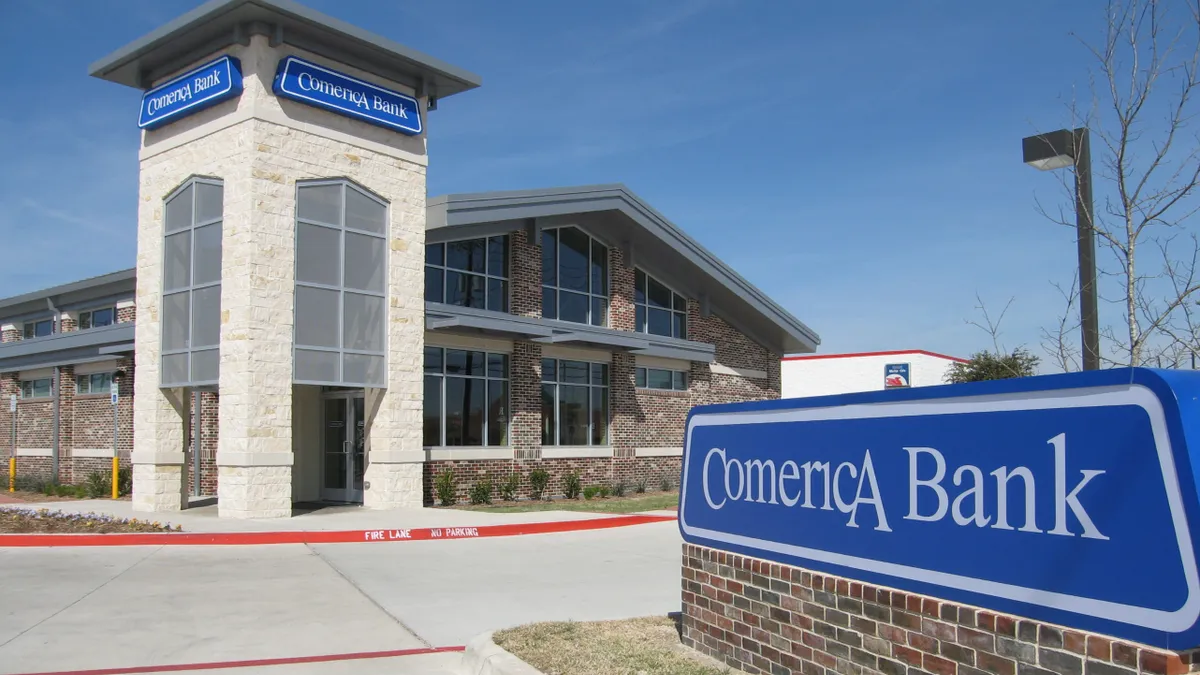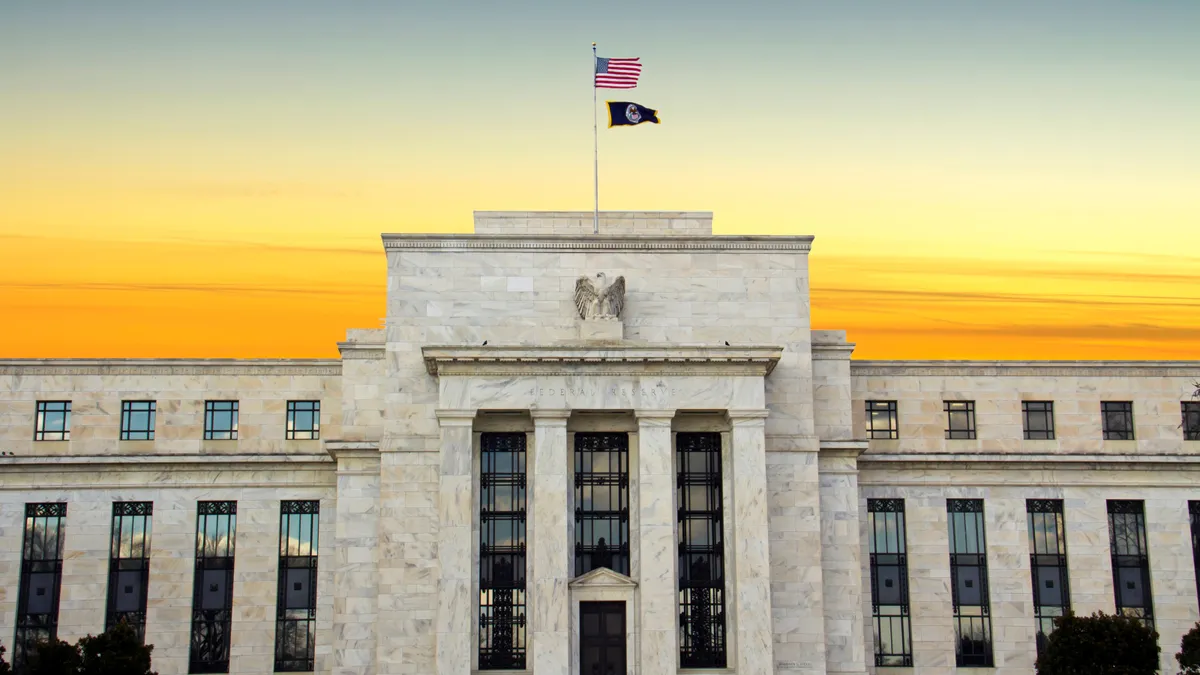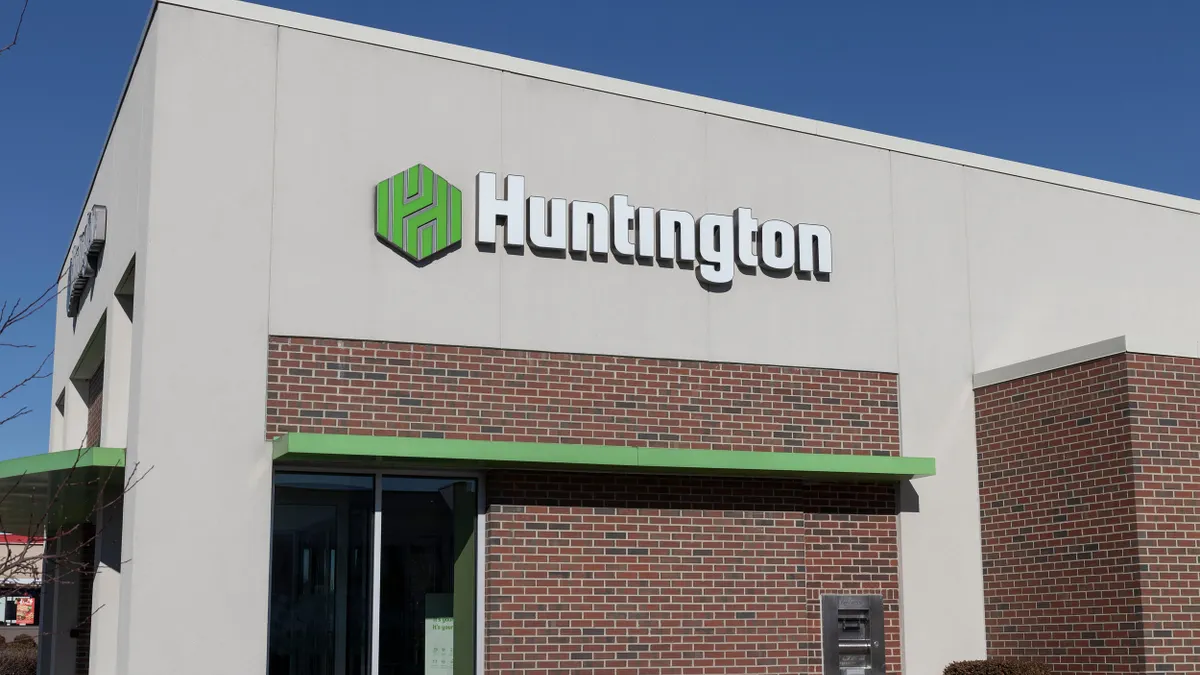After an extremely quiet first six months of deal activity, the second half of 2020 kicked off July 1 with a merger announcement between two New York-based banks.
Dime Community Bancshares and Bridge Bancorp will create an $11 billion-asset bank through their $489 million transaction.
The next day, First Horizon and IberiaBank announced they had completed their $3.9 billion merger of equals (MOE).
Could those two transactions be a sign of increasing positivity and a coming uptick in mergers and acquisitions for the second half of the year? Maybe, but probably not.
Potential earnings growth and lower deal pricing could lead to more M&A before 2021— especially more MOEs — but a continued dearth of deals is more likely, industry insiders told Banking Dive.
Stephen Scouten, an analyst with Piper Sandler, said he does not suspect the latter half of 2020 will be much different from the first but added that a few more MOE announcements are possible.
"For the most part, none of these banks are really certain about how their own credit books will perform, let alone someone else’s," he said. "So even though it would be a good way to grow earnings, and stock-for stock-deals should make sense regardless, I doubt you will see much activity given the lack of certainty."
There were 270 bank and thrift deals announced in 2019, but only 58 so far this year, according to S&P Global.
On top of the lack of new deals, banks are nixing some already-announced transactions due to the pandemic.
Louisiana-based Investar Bank in December announced plans to acquire Cheaha Bank, but said in early July COVID-19 effectively put an end to that.
Similarly, Tampa, Florida-based Suncoast Credit Union announced plans to acquire Miami-based Apollo Bank in December, but also ultimately called it off. It would have been the largest CU-bank deal to date.
But there is some hope.
Jacob Thompson, a managing director at SAMCO Capital in Dallas, said although conditions are not favorable for an upswing in M&A any time soon, there are a couple of scenarios that could lead to deal announcements.
One would involve smaller, struggling institutions that are ripe to be picked off. "If [buyers are] picking up a quality franchise for an attractive valuation, then they'll look at it," he said.
The other scenario involves deals where much of the groundwork was laid before the pandemic hit. Thompson said SAMCO is working on an MOE in which conversations started last year. Both sides remain committed and have significantly progressed toward an announcement, he said.
Banks that have not yet started negotiations may be hesitant to do so in the current environment.
"Buyers are so focused on getting their own house in order that it’s just too risky to step out there to try to acquire another franchise," Thompson said.
Danny Payne, a bank consultant and former commissioner of the Texas Department of Savings and Mortgage Lending, said banks have much bigger and more pressing issues on their plates than M&A, including beefing up their loan loss reserves and keeping regulators at bay.
"There simply are so many unknowns to deal with," he said. "And there’s no history or roadmap to go by."
Deals that are announced will be for banks "merging to survive," he said, adding that being acquired is often a "death sentence" for much of the acquired senior management, key staff and board.
He said the First Horizon-IberiaBank deal was unique in that certain aspects of the finished merger allowed room for key people on both sides. "That’s not normal, and we may see in time key management 'deciding' to step down or take early retirement," he said. "After the honeymoon, reality surfaces, heads roll, differences occur, position jockeying starts, political differences and management styles start clashing, et cetera. That’s reality."
Robert Bolton, president of Iron Bay Capital in Rochester, New York, said the uncertainty surrounding the coming November elections combined with the lack of a vaccine for COVID-19 will result in little M&A, at least until the first quarter of 2021.
Against the current backdrop, it remains difficult to value a company and their credit portfolios, he said.
Additionally, Paycheck Protection Program fees and related activity have helped many smaller banks stay busy and allowed them to prove their value to their clients.
"Many we talk to are optimistic about their prospects for the future," he said.
Bolton said many community bank CEOs believe their banks are adequately reserved, and requests for deferrals seems to be moderating.
"That said, I believe we will see more companies look for strategic alternatives in the form of MOEs and some outright purchases," he said. "As many deals are done with stock, buyers may be hesitant to do deals with currently depressed share prices."
Still, some banks may be searching for an acquirer to survive, Payne said. They know the Federal Deposit Insurance Corp. will use receiverships to minimize their losses. But the problem is there are few banks that stand out as a master acquirer.
"Even the Goliaths have serious issues that do not justify acquisitions right now," he said. "But the end effect will be the same: fewer banks. That type of M&A is not the preferred type, but the inevitable one, I’m afraid. I hope I’m wrong, but I see no other path at this time."




















